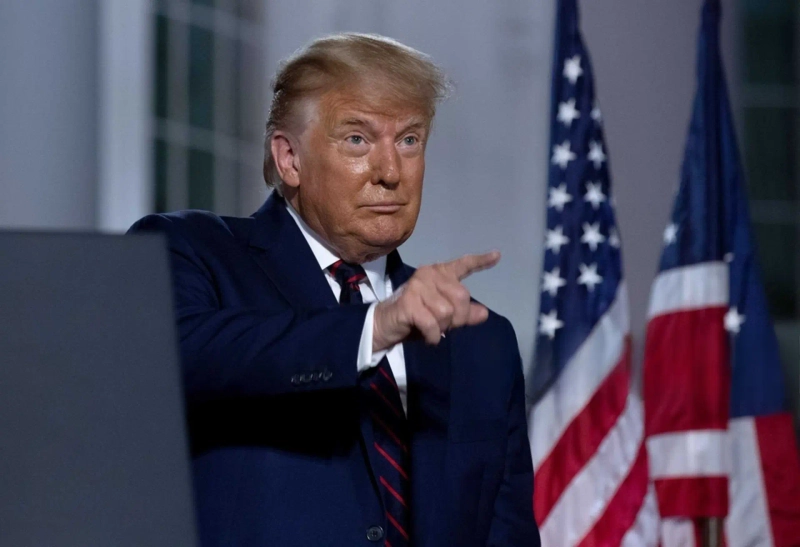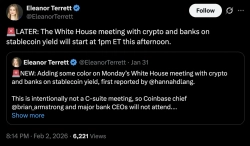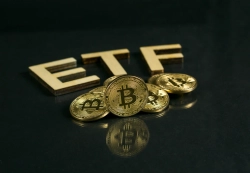Editor's PiCK
Is the Next Target of the Tariff War... Asian Markets 'Collapse'
Summary
- It was reported that Asian stock markets plummeted due to the global tariff war of the Trump administration.
- It was stated that there are growing concerns that major Asian countries will be the next targets of the tariff bomb.
- It was reported that Korea's KOSPI and KOSDAQ indices fell by 2.52% and 3.36%, respectively.
KOSPI 2.5%·Nikkei 2.8% ↓
Won-Dollar Exchange Rate Surges Over 14 Won

As the Donald Trump administration in the United States opened the door to a 'global tariff war', stock markets in Asia, including Korea, Japan, and Taiwan, plummeted simultaneously. This is due to growing concerns that major Asian countries with trade surpluses with the United States will be the next targets of the Trump administration's 'tariff bomb'.
On the 3rd, the KOSPI index plunged 2.52% to close at 2453.95, breaking the 2500 level. The KOSDAQ index also fell 3.36% to close at 703.80. Taiwan's Weighted Index dropped 3.53%. Japan's Nikkei index fell 2.81%.
Major domestic blue-chip stocks showed a simultaneous decline. Samsung Electronics and SK Hynix fell by 2.67% and 4.17%, respectively. Kia, which has a production plant in Mexico, and POSCO Holdings also could not avoid a sharp decline, falling by 5.78% and 4.61%, respectively. The secondary battery sector also fell across the board.
Foreign investors sold 872.1 billion won worth of stocks in the securities market. After the Deep Seek shock, the amount sold by foreigners in the securities market over two trading days reached 2.0476 trillion won.
The value of the won fell further due to concerns about a global trade war. The won-dollar exchange rate (closing price at 3:30 PM) ended at 1467.20 won, up 14.50 won from the previous trading day. The financial market was shaken because President Trump decided to impose an additional 25% tariff on imports from Canada and Mexico and 10% on Chinese goods starting on the 4th (local time). President Trump also announced that tariffs would soon be imposed on the European Union (EU).
Major Trade Surplus Countries with the US: Korea, Japan, Taiwan... As Tariff Threat Looms, Asian Markets 'Panic'
Is Trump Targeting Next... Financial Markets in 'Tariff Phobia'
The reason why Asian stock markets, including Korea, plummeted on the 3rd is due to growing concerns that the next 'tariff bomb' target of the Donald Trump administration will be Asian countries. As the EU is identified as the next tariff target and it becomes clear that allies are not exempt, investors' risk aversion sentiment is strengthening.
Foreign Ownership of Samsung Electronics Falls Below 50%
On this day, the KOSPI index fell 2.52% to close at 2453.95. It fell below the 2500 level again for the first time in about a month since the 7th of last month. Foreign investors net sold 872.2 billion won worth of stocks in the securities market.
On this day, 2226 stocks (80.9%) fell in the KOSPI and KOSDAQ markets. The decline in the secondary battery sector, which was hit by the abolition of the Inflation Reduction Act (IRA) and the tariff bomb, was noticeable. POSCO Future M and LG Energy Solution, which have supply chains established in Mexico and Canada, plunged 9.66% and 4.40%, respectively.
The decline in the semiconductor sector was also noticeable. SK Hynix and Hanmi Semiconductor fell by 4.17% and 6.36%, respectively. President Trump's remarks that "some additional tariffs on certain countries will focus on steel, pharmaceuticals, and semiconductors" ignited the situation. Ko Jae-ho, head of the stock management division at Kansas Asset Management, said, "Investors recently adopted a strategy of 'shorting' Samsung Electronics and 'longing' SK Hynix, so the decline in NVIDIA-related stocks is significant."
The foreign ownership ratio of Samsung Electronics recorded 49.99%, falling below 50%. It is the first time in about two years since January 2023. On this day, Samsung Electronics fell 2.67% to close at 51,000 won. Concerns that the Trump administration's semiconductor export restrictions could be strengthened to counter China's pursuit of artificial intelligence (AI) technology affected the situation. Yoon Yeo-cheol, head of the research center at IBK Investment & Securities, explained, "As foreign investors began to reduce their overall exposure to the domestic stock market, reducing the proportion of the top market cap stocks also had an impact."
"Asian Countries Also Within Tariff Bomb Range"
Major Asian stock markets could not avoid weakness. Taiwan's Weighted Index and Japan's Nikkei 225 index plunged 3.53% and 2.66%, respectively. This is due to concerns that major Asian countries have come within the range of tariffs as President Trump announced that "the next tariff target country is the EU." Japan, Korea, Taiwan, and Vietnam are representative countries with trade surpluses with the United States. President Trump is pursuing a policy of imposing universal tariffs regardless of allies or competitors.
Among Asian countries, Vietnam has the largest trade surplus with the United States. From January to November last year, Vietnam's trade surplus with the United States was $113.1 billion, ranking third after China and Mexico. This is due to the impact of global companies relocating their production bases as an alternative to 'decoupling from China'.
During the same period, Japan also achieved a large trade surplus ($62.6 billion) by exporting automobiles and semiconductors. Taiwan, which owns the world's largest semiconductor foundry company, TSMC, also recorded a trade surplus of $67.4 billion during the same period. During the same period, Korea ($60.3 billion) ranked sixth.
Opinions are divided on the impact of this global tariff war on the domestic stock market. Kim Tae-hong, CEO of Growth Hill Asset Management, said, "Businessman President Trump will negotiate and compromise on the level of tariffs."
There are also opinions that it will act as a major uncertainty in the stock market for the time being. Director Ko said, "Concerns that aggressive tariff policies will lead to rising prices and economic slowdown could weigh on the stock market." When the tariff war began in earnest during the first Trump administration in early 2018, the KOSPI index, which was approaching 2600, plunged to 1996 in October of the same year.
Sungmi Shim, Rian Kim, Si-eun Lee, reporters smshim@hankyung.com

Korea Economic Daily
hankyung@bloomingbit.ioThe Korea Economic Daily Global is a digital media where latest news on Korean companies, industries, and financial markets.
![[Analysis] "XRP risks repeating the 2022 rout…most short-term investors in the red"](https://media.bloomingbit.io/PROD/news/845f37bb-29b4-4bc5-9e10-8cafe305a92f.webp?w=250)


![[Exclusive] “Airdrops also taxable”... Authorities to adopt a ‘comprehensive approach’ to virtual assets](https://media.bloomingbit.io/PROD/news/4bde9dab-09bd-4214-a61e-f6dbf5aacdfb.webp?w=250)